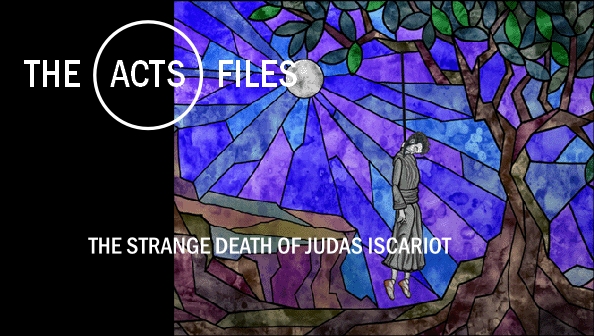By Tyson Thorne

There is one part of chapter one that we haven’t discussed properly yet, and that is the fate of Judas. This is perhaps one of only two passages that unbelievers know better than believers. The first is Jesus’ famous “Judge not” discourse in the Sermon on the Mount, usually used to shut down any conversation about a person’s sin. This passage is used by those on the offensive against Christianity and is offered as evidence that the Bible has contradictions in it.
Matthew 27 relates a version of Judas’s death that appears contradictory to this passage in Acts. Matthew reports that Judas returned the money to the Temple, and then went and hanged himself. Yet Luke reports that the 30 pieces of silver were used to buy a plot of land and that, on that parcel, he fell in such a way that his intestines burst. What really happened?
To get to the bottom of this apparent contradiction we need to reconstruct the timeline of events and follow the evidence where it leads. If the Bible is the inspired word of God then it is not contradictory, which means both accounts must be true. How can this be? I believe Matthew reports the initial events, and Luke the later. Here’s how it comes together.
Matthew tells us that after Jesus’ arrest Judas returned the 30 pieces of silver to the chief priests and elders out of sincere guilt. The priests had a problem at this point; the money having been used to arrange the death of Jesus made it blood-money, and as such it could not be returned to the treasury. I find it interesting that they had enough integrity to not re-deposit the funds, but so little integrity they didn’t mind taking the life of Jesus. Regardless, they used the funds instead to buy a field for burying deceased poor people. It was in this field that Judas would hang himself.
As we discussed earlier, there are three feasts that overlap at this time. Jesus died on Passover and resurrected on the Feast of First Fruits. Both of these feasts are to be treated as a Sabbath, meaning the Israelites were to do no work on that day. If Judas hung himself on Passover or (more likely) on the Feast of First Fruits no one would have cut him down. Instead, they would have allowed his body to hang a full day and night in the heat of the Middle Eastern sun. Following death the body bloats from the production of internal gasses. The body would have smelled immensely and carrion eaters would have started picking at the softest tissues. When someone did get around to cutting down Judas’ body, it apparently fell to the ground and bust open, spilling his intestines.
Both Matthew and Luke agree that it was the event of Judas’ death that caused this potter’s field to be named Hakeldama, which means “field of blood.” A hanging alone does not cause a drop of blood to be spilled. Even so, Matthew tells us that became the fields name. Clearly something more than the hanging had to have occurred there. Luke, the physician and historian, provides us the additional detail.
|
|
|
